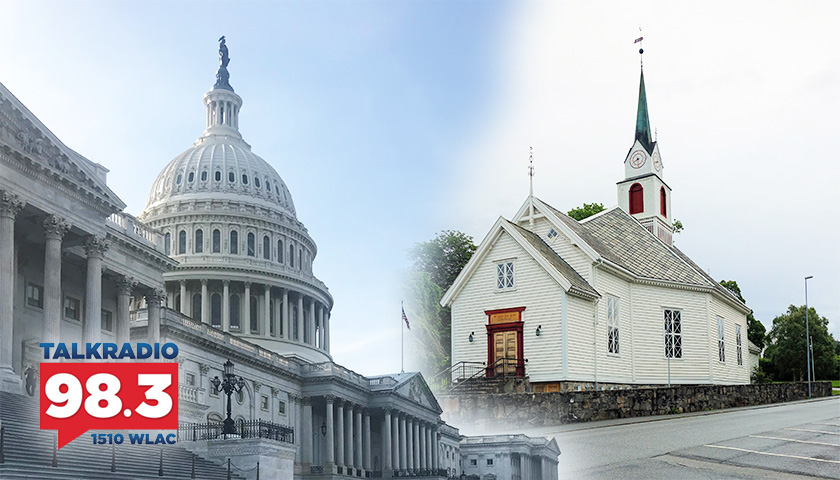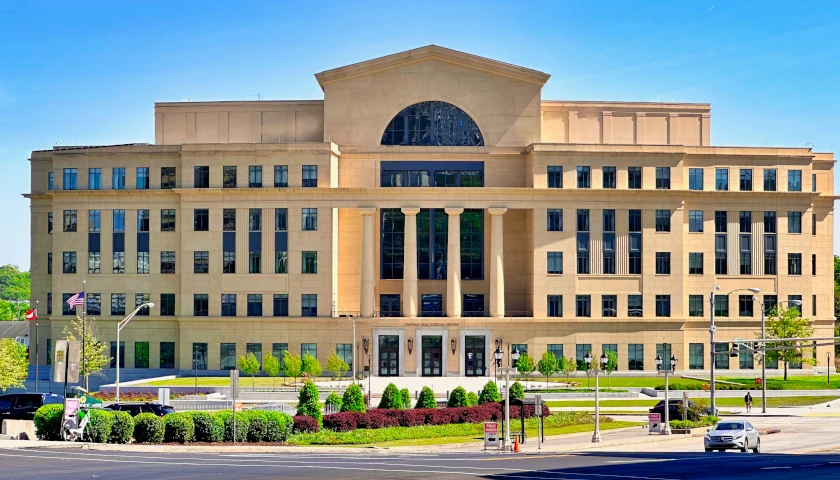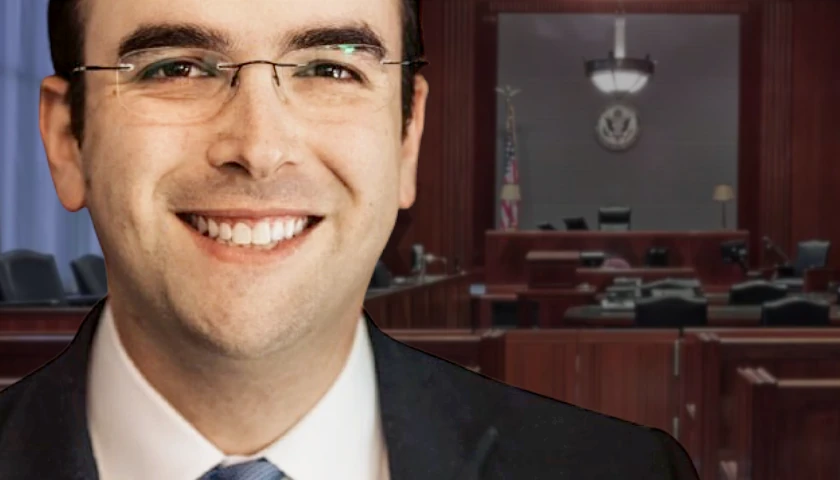Live from Music Row Tuesday morning on The Tennessee Star Report with Michael Patrick Leahy – broadcast on Nashville’s Talk Radio 98.3 and 1510 WLAC weekdays from 5:00 a.m. to 8:00 a.m. – host Leahy welcomed official guest host Grant Henry in the studio for another edition of Grant’s Rants.
GRANT HENRY:
So I was perusing Twitter on Easter Sunday, something that I would never suggest anyone do. And I came across several politicians using their accounts to celebrate Easter.
And an overwhelming number of responses to these tweets focused on the issue of separation of church and state, one of the most widely misunderstood phraseologies in the history of our country.
Responses like “whatever happened to separation of church and state?” and “please do not mix your religion with our government” littered the comment section.
So, ladies and gentlemen, it’s time for a quick history lesson on the term “separation of church and state.” Now, the First Amendment creates two distinct points dealing with religion: the establishment clause and the free exercise clause.
And as many of you already know, the phrase “separation of church and state” is nowhere in the First Amendment. In fact, it’s nowhere in the Constitution at all. That phrase came from a letter that President Thomas Jefferson wrote to the Baptist Association of Danbury, Connecticut, shortly after he became president.
You see, Thomas Jefferson was America’s first anti-federalist president. He opposed the creation of a strong central government, and his election thrilled many Baptists, because that denomination frequently suffered from the centralization of power in the early years of this country.
The Baptists wrote a letter to Jefferson, congratulating him on his victory, but also expressing their fear that the First Amendment could allow the federal government to encroach upon their ability to practice religion.
They were worried that the inclusion of protection for the “free exercise of religion” suggested that the right of religious expression came from the government, and therefore, the government might someday attempt to regulate religious expression because it was given the potential power to do so.
They were not asking the question of whether their faith could influence government. Clearly, the answer to that question was yes. They were only concerned about whether government could influence their faith. Jefferson understood their concern.
It was also his. In fact, throughout his political career, he made numerous declarations about the federal government’s inability to restrict religious rights.
Writing several letters to different churches in 1808, Jefferson said, ‘I consider the government of the United States as prohibited by the Constitution from intermeddling with religious institutions.
The Constitution has not placed our religious rights under the power of any public fiduciary.’ Perhaps most importantly, what Jefferson was expressing was that the separation of church and state was not concerned with keeping religious influence out of government.
Rather, it establishes a wall to keep government out of religion, essentially a one-way street, you see: government out of religion, not the other way around. He believed, along with all the other Founding Fathers, that the First Amendment had been enacted only to prevent the federal establishment of a national denomination.
So back to this letter that the Danbury Baptists sent to Jefferson. On January 1st, 1802, Jefferson sent a letter back to them assuring them that they need not fear – that their free exercise of religion would never be interfered with by the federal government. As he explained:
“Believing with you that religion is a matter which lies solely between man and his God. The legislative powers of this government reach actions only and not opinions [emphasis added]. I contemplate with sovereign reverence that the act of the whole American people which declared that their legislature should make no law respecting an establishment of religion or prohibiting the free exercise thereof, thus building a wall of separation between church and state. I shall see with sincere satisfaction the progress of those sentiments which tend to restore man to all his natural rights.”
And, of course, the term natural rights meant something very particular to Jefferson and the people of that time that religious liberties were inalienable rights.
Now, listen, while it is true that modern court-day analysis for what constitutes an establishment of religion is vastly different than what it was when we founded this country.
Never let anyone tell you that our Founding Fathers intended for your faith to have no influence on government. Jefferson believed that God, not the government, was the author and source of all rights.
And that government, therefore, was to be prevented from interference with those rights. Put very simply, the wall mentioned in the Danbury letter was not meant to limit religious activities in public.
Rather, they were to limit the power of government to prohibit or interfere with those expressions. Again, that wall was not meant to limit religious activity.
Rather, those participating in the religious activity were meant to use their power, the power of the people to limit the government from influencing their lives.
Listen to the interview:
– – –
Tune in weekdays from 5:00 – 8:00 a.m. to The Tennessee Star Report with Michael Patrick Leahy on Talk Radio 98.3 FM WLAC 1510. Listen online at iHeart Radio.





